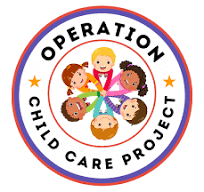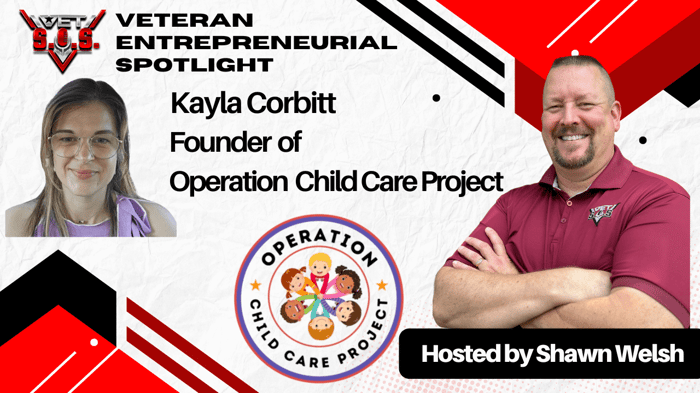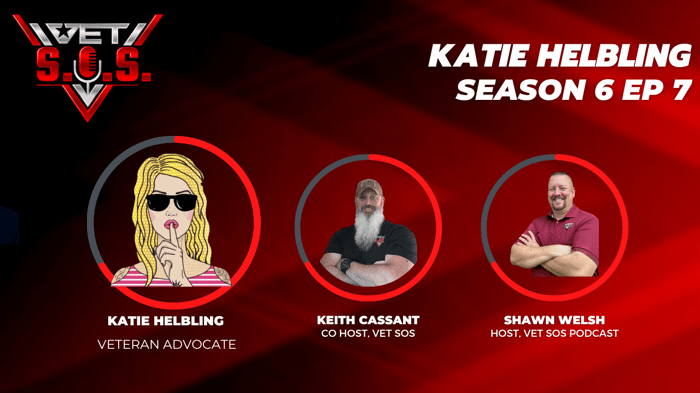Veteran Child Care Access: How Kayla Corbitt is Solving a Silent Crisis for Military Families
Veteran child care access is an urgent but often overlooked challenge facing countless military-connected families. For many veterans and active-duty families, navigating the transition from service to civilian life comes with layers of complexity—and at the core of many of these challenges is the issue of child care. Whether it’s trying to maintain employment, attend medical appointments, or pursue education, the lack of accessible, affordable, and safe child care becomes a major obstacle.
In this episode of the Veteran Entrepreneur Spotlight from VET S.O.S., host Shawn Welsh interviews Kayla Corbitt, the founder of Operation Child Care Project, a nonprofit on a mission to improve veteran child care access across the United States. What started as a personal pain point for Kayla has turned into a national effort to change the child care landscape for military and veteran families.
Why Veteran Child Care Access Matters More Than Ever
Veteran child care access isn’t just about convenience—it’s about survival. Families transitioning out of military service often lose access to Department of Defense (DoD) programs, yet they’re not quite integrated into civilian support systems. This gap can leave veteran families scrambling, particularly if they lack extended family or social support networks in their new location.
Many veterans, due to their disability compensation, are disqualified from state-level assistance programs even though they genuinely need support. According to Kayla, this "benefit" can become a barrier. “Most of the time, they’re knocked out of [support programs] with the disability that they get. And so they have nothing when they transition out,” she explained.
For Kayla, ensuring veteran child care access means helping families stabilize after transition so they can build meaningful lives. That includes enabling them to pursue work, health care, and education with the confidence that their children are safe and supported.
A Personal Journey into Advocacy
 Kayla Corbitt
Kayla CorbittKayla Corbitt never planned to be a business owner. A military spouse with a master’s degree, she found herself unable to secure meaningful employment while stationed at a continental U.S. (CONUS) base. The only job she could get paid $10 an hour and involved watching people take exams through one-way glass.
Frustrated and curious, she began researching what other military spouses were doing. The answer she kept encountering was the same: “You can’t work because you can’t afford child care.”
At the time, she didn’t yet have children, but once she became a parent, the reality hit even harder. Like many military families, she and her spouse were faced with impossible choices—stay employed or stay home. The math didn’t add up.
Rather than accept the status quo, Kayla launched Operation Child Care Project to address the real-world barriers to veteran child care access.
Building Operation Child Care Project
 Founded on the belief that no veteran or military family should be denied opportunity due to lack of child care, the Operation Child Care Project (OCC Project) helps families navigate child care systems through direct support, advocacy, and resource sharing.
Founded on the belief that no veteran or military family should be denied opportunity due to lack of child care, the Operation Child Care Project (OCC Project) helps families navigate child care systems through direct support, advocacy, and resource sharing.
The organization offers:
One-on-One Case Management: Tailored assistance to guide families through eligibility requirements, program applications, and long-term care planning.
Pilot Programs for Trusted Caregivers: Many families don’t have local relatives or trusted neighbors to rely on. OCC helps connect them with vetted caregivers for emergency and short-term needs.
Transitional Support: Specific services designed to support veterans who no longer qualify for DoD care but still face barriers to civilian access.
Kayla emphasizes that veteran child care access requires more than listing available resources. Families need help interpreting, applying for, and ultimately accessing those resources—because many of them are functionally out of reach. “Just because it's available doesn't mean it's accessible,” she said, referring to the disconnect between federal promises and practical realities.
Entrepreneurship Fueled by Mission
Although Kayla had no formal business training, her mission drove her to seek support from veteran entrepreneur programs. She joined Bunker Labs and later Warrior Rising, where she gained practical skills, mentors, and eventually, funding.
“Warrior Rising helped me understand how to translate my passion into practice,” Kayla explained. She used the training to compete in pitch competitions, winning enough capital to officially launch OCC.
These programs played a pivotal role in helping her scale the nonprofit, but Kayla emphasizes that mentorship was even more important than money. “It’s the practical advice that we’re lacking the most. What does this actually mean for me and my business?”
Her story highlights how vital entrepreneurial support is to solving complex challenges like veteran child care access.
A Community-Driven Approach
What sets OCC Project apart is its commitment to meeting families where they are—emotionally, geographically, and financially. The team recognizes that every family has unique circumstances, and a one-size-fits-all approach doesn’t work.
For example, many military families live in child care deserts, where there are simply not enough licensed providers. Others are stationed overseas, where local regulations or language barriers create new obstacles. And for veterans, even finding information about options can be a challenge.
By offering personalized support, OCC removes the burden of navigating a confusing system alone. And by pushing for broader awareness, Kayla hopes to bring the issue of veteran child care access into the national conversation.
Lessons for Aspiring Entrepreneurs
Kayla’s journey into nonprofit leadership offers several lessons for other veterans and military spouses:
Start Before You're Ready: “I had nothing to lose,” she said. That mindset helped her take the first step even without a roadmap.
Lean Into Community Resources: Veteran-focused organizations like Warrior Rising can provide the training, mentorship, and funding necessary to get started.
Adapt Your Mindset: You don’t need a background in business to run a successful organization—you need a mission and a willingness to learn.
Protect Your Brand: One of Kayla’s early entrepreneurial lessons was buying multiple versions of her domain name to ensure traffic landed where it should.
How to Get Help with Veteran Child Care Access
Families looking for support can visit OCCproject.org, where they’ll find case management options, current policy updates, and access to new program information. Kayla’s team also actively posts updates on social media, ensuring that families stay informed and connected.
Veterans facing child care barriers during their transition should know they are not alone. Organizations like OCC Project exist to fill in the gaps left by traditional systems—and their services can be the difference between thriving and merely surviving.
Final Thoughts: Creating a Sustainable Impact
The importance of veteran child care access cannot be overstated. It is a key factor in family stability, economic empowerment, and post-service success. When veterans cannot find safe, affordable child care, their ability to work, heal, and grow is severely limited. Fortunately, people like Kayla Corbitt are stepping in to change that.
Through Operation Child Care Project, Kayla is building not just a nonprofit—but a movement. A movement grounded in empathy, practical support, and the unwavering belief that our military and veteran families deserve better.
Her story is a testament to what’s possible when passion meets purpose, and when one voice speaks up for thousands who often go unheard.





